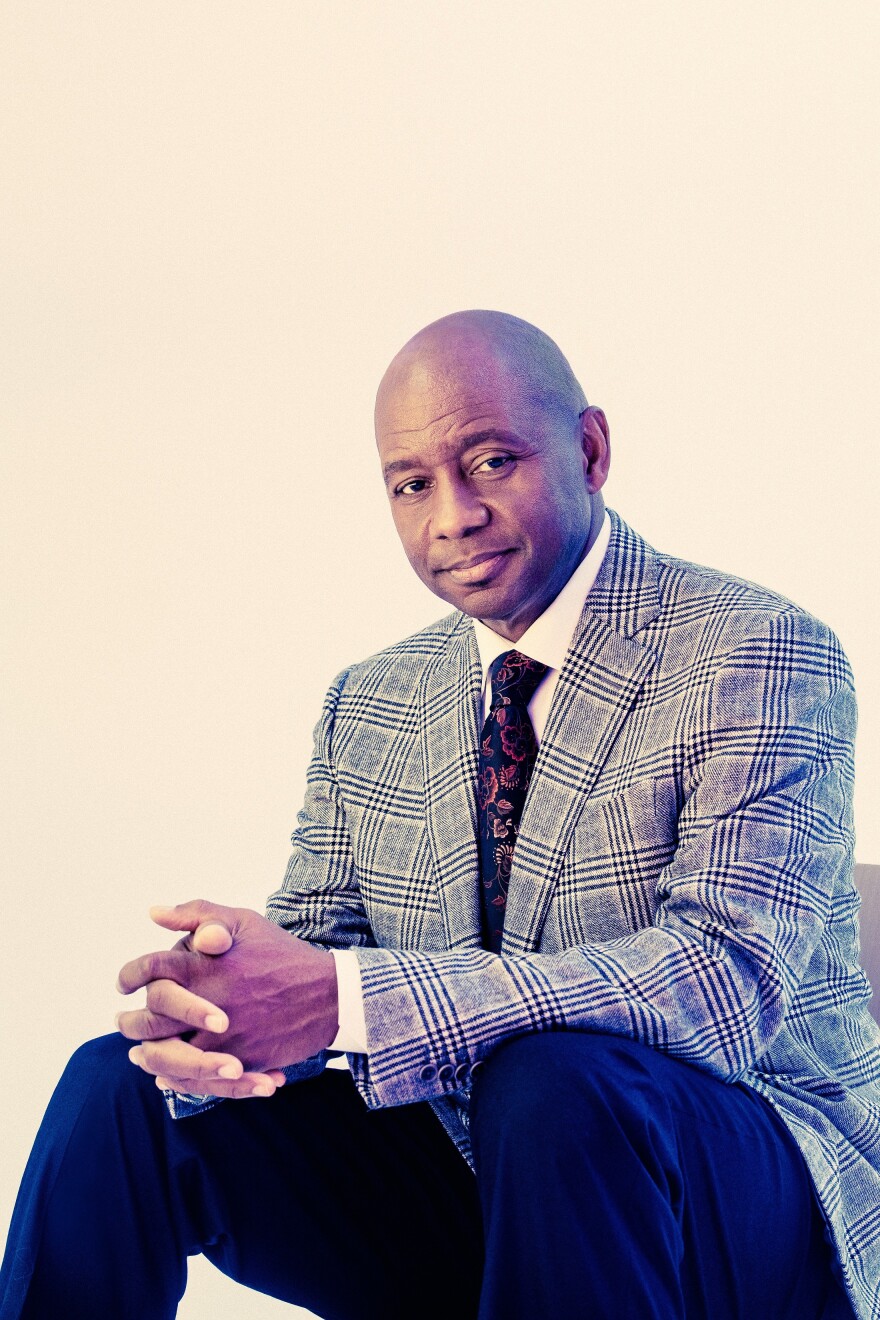This year marks the 20th anniversary of "Romare Bearden Revealed," a jazz album inspired by Charlotte-born artist Romare Bearden. The album is the work of one of the most celebrated jazz saxophonists in the world, Branford Marsalis. His decades-long career includes three Grammys.
In 2011, he was named a Jazz Master by the National Endowment for the Arts, along with his father and brothers, who are also legendary jazz musicians.
Marsalis will perform "Romare Bearden Revealed" at The Jazz Room in uptown Charlotte on Sunday, and he joins us now to talk more about it.
Marshall Terry: What led you to make an album inspired by Romare Bearden in the first place?

Branford Marsalis: The National Museum was doing a retrospective on Romare's works and someone called from the museum and said, 'Would you guys be interested in doing a record?' And I said, Well, what's the timeline? And the timeline was really quick. We had to have the whole thing done in two weeks. I said, I don't know. My manager said, 'You know that you said yes wrong.' So I said, OK. And then I started calling the guys, calling my brother, writing arrangements, getting everything together. And within 10 days of that conversation, we were in the studio in New York making the record.
Terry: Were you aware of Romare Bearden's work prior to this?
Marsalis: Yeah, I'd met Romare sometime in the '80s and bought two of his paintings.
Terry: In what ways would you say that Bearden, in his work, inspired the music that you came up with on the record?
Marsalis: It was relatively easy because Romare was a jazz fan. So virtually every song on the record is a song that Mr. Bearden named a painting after some of his favorite songs, his favorite moments and periods. The one exception is the song on the record called "B's Paris Blues," because there's an actual song called "Paris Blues," and we couldn't use the name. But he called one of his paintings "Paris Blues."
Terry: Have you ever done anything like this before, recreating one of your albums live?
Marsalis: No. The reason this is happening is because a local Charlotte musician, Lonnie Davis, she called me and asked about the possibility of recreating the record for the Bearden exhibit that's coming to Charlotte. It was Lonnie's idea, it really wasn't mine. I'm glad she brought it up.
Terry: Well, let me ask you, what's it like revisiting that material 20 years later?
Marsalis: For me, it's funny because I threw all that music away. So I have to rewrite everything. I scoured the entire basement looking for it, and I just had to conclude that in one of my cleaning fits — which are few and far between — I just tossed it. I said, 'Well, I'm never going to play this again.' So some things are harder than others. ...The Duke Ellington song "I'm Slapping 7th Avenue With The Soles of My Shoe" — it's a big band arrangement. It's pretty expensive, and condensing it to a small group took me a while.
Terry: I want to go back just to Bearden for a second. You said you bought some of his paintings. Are you inspired by visual art when you make your music?
Marsalis: I'm inspired by visual art. But I'm not inspired by visual art, in general, as a template for making music. I think that any human being, and any artist, you are the sum total of all of your experiences, positively and negatively. And going to museums, going to exhibits helps me understand art outside of the box that I usually function in. And it helps me in ways that I cannot quantify, but I know that it helps. It helps change my outlook, and it changes my perspective.
Terry: Well, it's interesting, but you don't know how it does it.
Marsalis: No. If I did, then I'd be less of a musician. It's kind of like blinking your eyes. You know, if I put my hand in front of your face, you'll probably blink your eyes, and I'll say, 'How do you do that?' It's just like, I don't ... it's a reflex. It's just, there's a mysterious thing in music. There's a thing like, for instance, if you've ever been frightened by music or if you've ever been saddened by music. Have you ever heard a piece of music, instrumental music that made you cry?
Terry: Sure.
Marsalis: Well, why?
Terry: Can't say, I suppose.
Marsalis: Exactly. Can't say. That's the power of music. And so much of what makes music powerful is the thing that can't be qualified or quantified. Even though we spend ridiculous amounts of hours trying to do exactly that. I stopped doing that a long time ago. And I know that I'm a much better musician now at 62 than I was when I was 32 or 42.
And, you know, there's no magic slide rule to that. Just living life and addressing your weaknesses and trying to get better as a person, and trying to get better as a musician. And, sometimes, I think the thing that makes me better is not reaffirming things I already know, but being exposed to things in ways of thinking that I'm not generally familiar with.
Terry: Well, I certainly appreciate you taking the time, Branford.
Marsalis: It's a pleasure. Thank you, Marshall.
Terry: That's saxophonist Branford Marsalis, who will be performing his album "Romare Bearden Revealed" this Sunday at the Jazz Room in uptown Charlotte. And one quick note, JazzArts Charlotte is an underwriter of WFAE.


